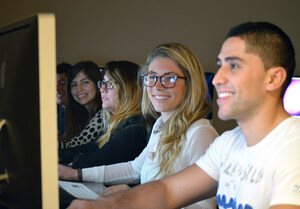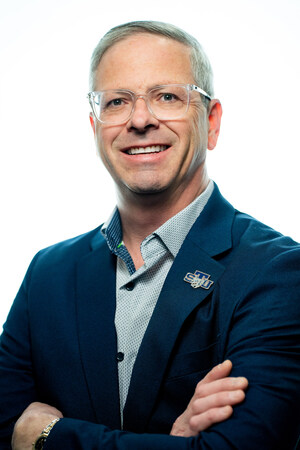MIAMI, Fla., Aug. 2 /PRNewswire-USNewswire/ -- Expert panelists, university faculty members, economists and intellectuals from the United States met in Miami's Hilton Hotel July 29-31 for the 20th Annual Conference of ASCE CUBA (Association for the Study of the Cuban Economy), co-sponsored by The Institute for Cuban and Cuban-American Studies. The Association was created in 1990 in response to the collapse of the Soviet Union and a group of Cuban-Americans' concern with the implications that these developments would have for Cuba. This July, as in previous years, there was an academic representation from Miami's St. Thomas University – with Dr. Maria Dolores Espino from St. Thomas' School of Business and Law School student Ana Cristina Maldonado participating in two important panels.
(Logo: http://photos.prnewswire.com/prnh/20100709/STULOGO)
(Logo: http://www.newscom.com/cgi-bin/prnh/20100709/STULOGO)
Maldonado, who won last year's ASCE Student Award for her research and presentations, discussed her 2010 research paper in the context of "Legal Dissent: Constitutional Proposals for Cambio in Cuba" in a panel devoted to social and civil society issues. Other academic colleagues joining her in the discussion were from Catholic University and Baruch College. Maldonados' extensive research focused on the dissidents' Varela Project with Oswaldo Paya and Ofelia Acevedo's collection of thousands of signatures in the island calling for a referendum, the release of all political prisoners and constitutional changes in Cuba as well as comparisons relating to how "Cambio" (socioeconomic and political change in the island) was accepted by the Cuban people.
Dr. Maria Dolores (Loly) Espino – a long-standing professor of Economics at St. Thomas University who has specialized in Cuba's tourism industry and the evaluation of environmental policies -participated in the panel Prospects for Tourism in Cuba: View from the U.S. Sector. Espino presented the topic "The Cuban Tourism Industry: Performance in the First Decade of the Century." The Cancun Conference and the impact of unrestricted American travel as well as the lease in golf and marina developments and present restrictions on Cuba travel were discussed by Chair Antonio Zamora and academic colleagues and South Florida guests. "With the possible exception of the Canadian market, all evidence points to the fact that Cuba's competitiveness in all major markets has been dwindling. This is probably attributed to two main factors: the low quality of Cuban tourism and increasing prices," said Dr. Espino.
The 2010 ASCE CUBA Conference also gathered alumni from Havana's Santo Tomas de Villanueva, the private, Catholic university which was closed by Castro in 1960 when he confiscated the land and expelled the St. Augustine friars and religious sisters from the institution.
SOURCE St. Thomas University
WANT YOUR COMPANY'S NEWS FEATURED ON PRNEWSWIRE.COM?
Newsrooms &
Influencers
Digital Media
Outlets
Journalists
Opted In





Share this article